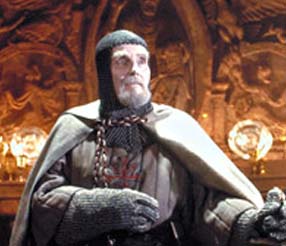Once the copies are made, I take back the originals and rip them up. All we have left are the copies.
Now, go through that process 20 more times with 20 different people for each copy, let them add in margin notes, correct where they think mistakes might be made and try to "interpret" what they think you might have meant each time.
Now, how many of you typically drive 5 MPH over the speed limit?" That usually gets me several manuscripts. "Yours were kept in the library of Alexandria and were burned by invading Muslims."
The library was first burned by Julius Ceasar, it was never really burned by the Muslims, that was an urban legend of the time. See how innacuracies can creep in?
Once there are 5 or 6 manuscripts remaining, I will photo copy them and give a set to each student. Their homework is to reproduce the original text and bring it to class the following week.
Now repeat 20 times with 20 different people, etc., etc....
In all the years I've taught this section, not once has anyone produced a flawless copy.
To be expected....
No two students, however, make the exact same errors. When you compare six copies, four or five will agree perfectly in a given reading. One or two will contain an error, but these are almost always different from one another.
OK, now repeat 20 times....
At the end of the exercise, every single student has been able to reproduce the original text--even though no autograph was available, and he/she only had imperfect and error-filled copies.
Wait, you just said they didn't produce a flawless original, now you are saying they are able to reproduce an orginal....did you take copies of copies into account, personal interpretation, notes, changes in language over millenia, the fact that some students DO make the same errors that get copied over and over, etc?
This, of course, is a simplified exercise in textual criticism. It aptly demonstrates the principal without the need for Greek or Hebrew scholarship.
OK, so if I were to give you an original Canterbury Tales, you could copy it, then have someone else copy that copy, so on and so on, in 100 years I would have something 99% close to the original? You couldn't even read the "english" Canterbury tales was written in....
This example IS simplified, I agree. Simple, useless and utterly wrong.
